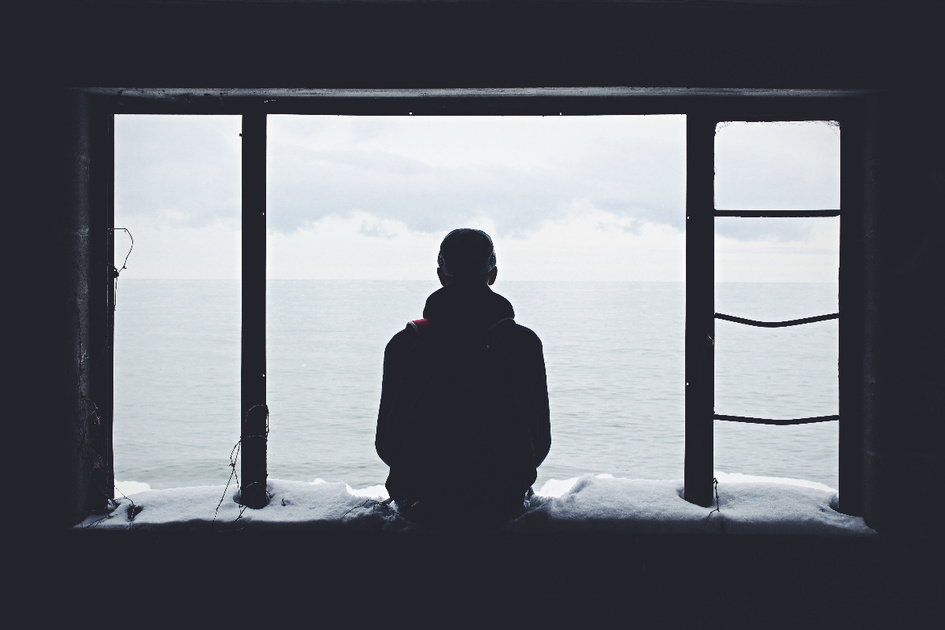
There’s a storm raging outside. Finally, a familiar reason for staying at home. I’m sitting at my kitchen table, watching melted snow fall like tears along the sliding kitchen doors, while snowdrifts make mountains out of molehills. It’s been a year since life was disrupted by a microscopic enemy. It’s as if our world is a snow globe that’s been turned upside down, and we are still trying to find our footing. We’ve suffered disruptions in schedules, finances and health. We’ve had all the outlets that used to keep us grounded shut down. Worst of all, we have suffered losses. Excruciating losses. The emotional impact of our new reality is unavoidable. Many report experiencing an increase in depression and anxiety, which makes it challenging to function the way we want. Negative thoughts hijack our minds, and it takes energy and hard work to realign these thoughts, which, to a large degree, may be triggered by feeling alone. I reach out to you through this article. Together, we can use the following three tools to elevate our mood.
Breathe. Seriously, don’t roll your eyes. Breathe deeply. Ironically, breathing is one of the things we have learned not to take for granted with this virus. Breathing automatically calms our nervous system and slows down our thoughts. It grounds us in the present, which needn’t be scary. We can use our breath to slow down our thoughts that spiral out of control and create anxiety.
Maximize the power of self-talk and hold on to positive thinking. Such as, G-d runs the world. If we are here, it is for a reason. Each of us has intrinsic value. We don’t get to decide how long we are here, but we can trust that we have purpose and we are not without G-dly connection. With that as a foundation, identify three things you appreciate. Savor these thoughts. Notice how they translate in your body as calming thoughts. Notice how your body reacts depending on which thought you focus on. With practice, we realize that many of the feelings of threat and despair stem from distorted thinking and we can begin to give them less credence.
Reach out. We are masking and distancing when what we need most is closeness and contact.
So many of us are yearning to hold children and grandchildren and are frustrated by being unable to get together with friends. Vivek H. Murphy, MD, writes in his book Together, “...our drive to connect is one of our most important survival instincts. It’s in our relationships that we find the emotional sustenance and power we need in order to thrive. So strong is this instinct that when we move away from connection it induces genuine pain. And pain’s role in our survival serves to remind us to pay attention to its source so we can address it” (p. 51). I urge my clients to find creative ways to reach out and connect with others during these times. Some have formed Zoom groups around hobbies such as knitting, reading, or just plain socializing. Others have used social media to join with others that share similar interests, whether it be cooking, investing or painting. There are couples who have found that they could no longer put on the back burner the pain in their marriage and have come into therapy to address their issues, seeking bridges for connection and balms for old hurts. Individuals are engaging in therapy looking to promote a more authentic encounter with self and others by increasing self-understanding and capacity for connection.
As I wrap up this article I glance through my front window. The wind is still blowing snow in strong gusts. It is freezing and the sun is setting. And then I see them. One man after another. Wrapped up tight in coats, hats and scarves bracing themselves against the wind. Dark figures against a background of white, prayer books in their hands. They are gathering in my neighbor’s backyard for prayer, as they’ve been doing for almost a year. The storm hasn’t stopped them. My heart surges with love that I imagine can be only a fraction of what G-d feels for us. We can still connect, find meaning, and be there for each other whether we are challenged by a snowstorm or a pandemic. It takes work, but we can do it. Whether it’s with our family, neighbors, or G-d, our connections will keep us strong and emotionally healthy. We needn’t feel alone.
Dvorah Levy is a licensed clinical social worker specializing in individual, couple, and family therapy. She maintains a private practice in West Hempstead, Cedarhurst and Brooklyn, New York. She works with a wide range of emotional issues, providing services that include therapy for depression, grief counseling, parenting support, couple counseling and trauma treatment. Visit dvorahlevylcsw.com or call 516-660-7157 to learn more or to schedule an appointment.
Photo by Noah Silliman on Unsplash
 Previous
Previous

